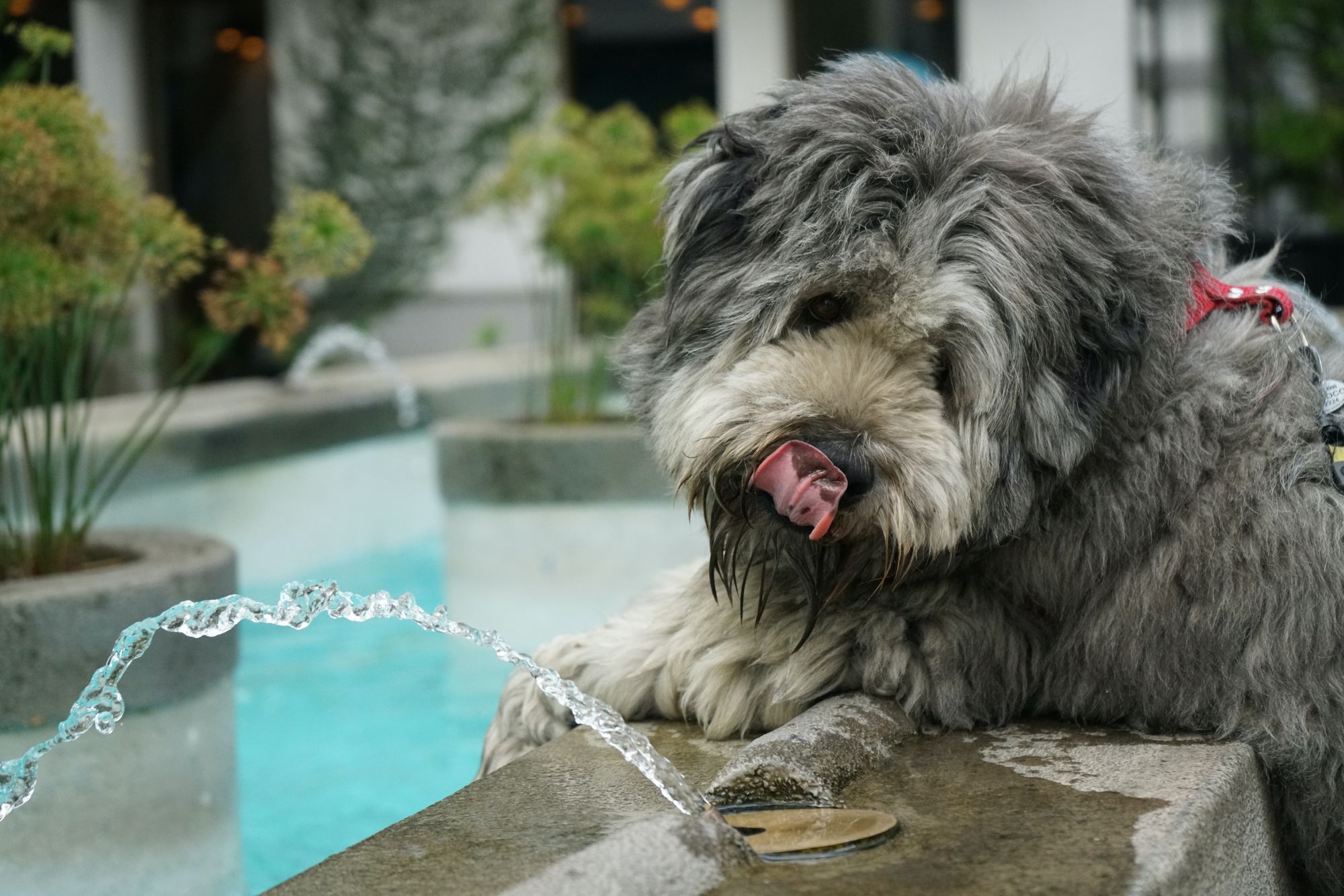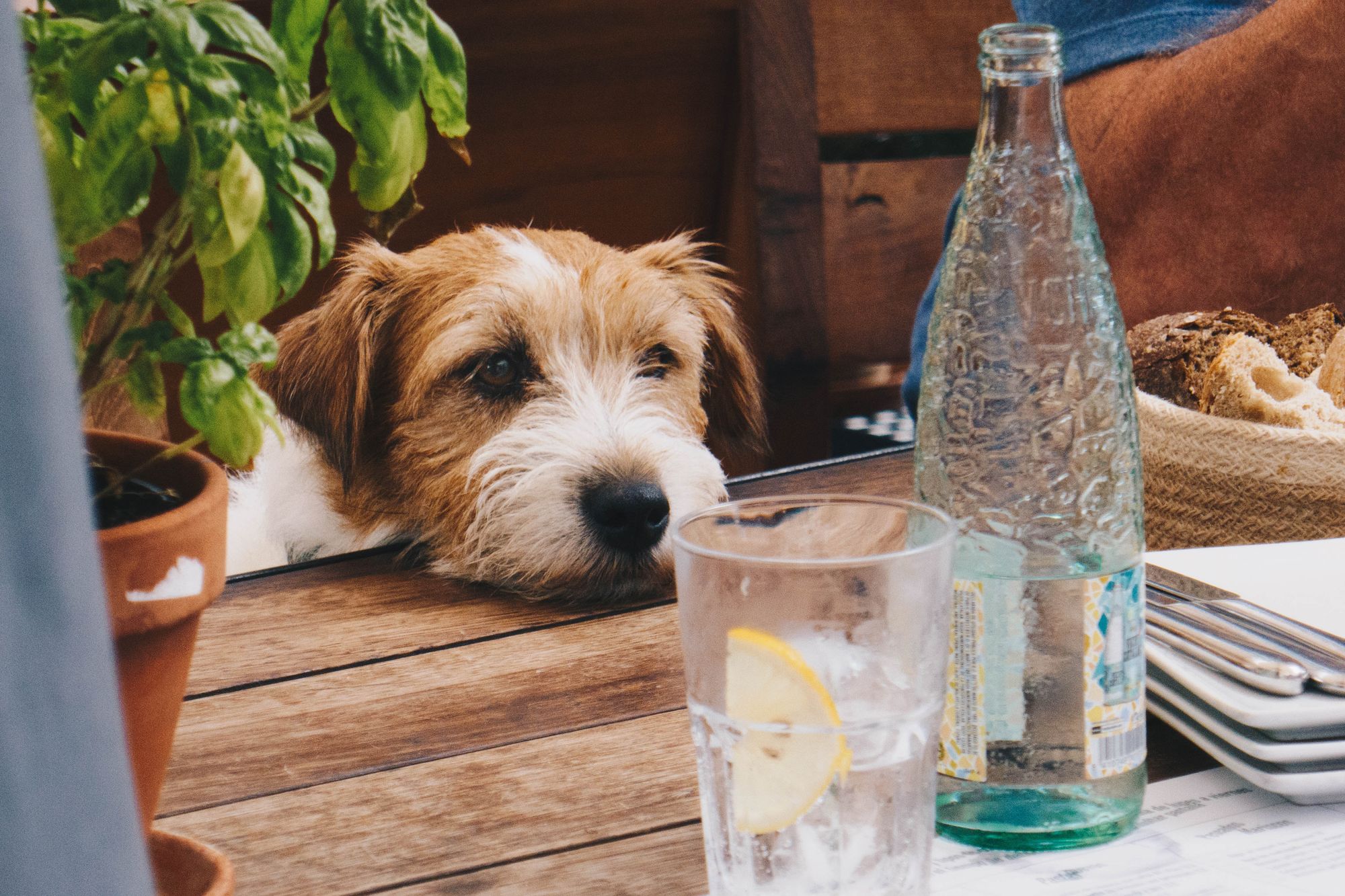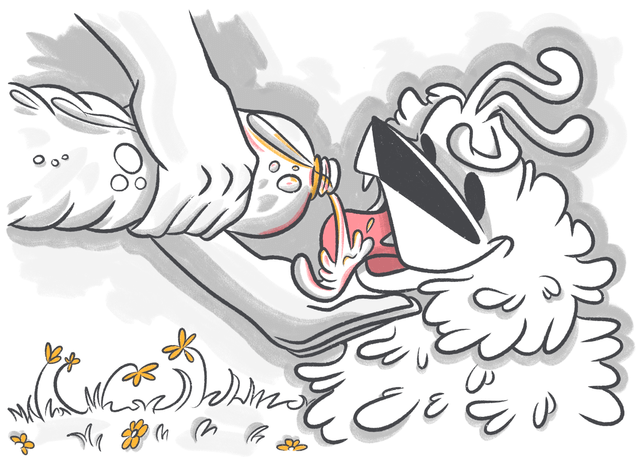If you've noticed your dog or puppy drinking much more water than usual, it's vital to look for a cause. While hydration is critical for dogs (they are about 70% water), veterinary research shows excessive drinking, called polydipsia, and excessive urination (called polyuria), can be signs of medical and behavioral problems.
Put simply, a dog that is drinking and peeing a lot may need to see the vet. So whether you have a playful puppy or a savvy senior dog, we'll look at some common causes and what you need to know.
Stop Googling - Ask a Real Vet
Content:
- My Puppy is Drinking a Lot of Water
- Common Reasons For A Puppy Drinking A Lot of Water
- My Older Dog Drinks a Lot of Water
- Why Does My Dog Drink a Lot of Water and Then Throw Up
- FAQ
- Conclusion
My Puppy is Drinking a Lot of Water
In the case of puppies, they are often more active than adults, so all that playtime can lead them to drink more water. They also pee more often, so they need to drink more to replace lost fluids. Puppies also have a faster metabolism and have to drink water more often.
In some cases, puppies drink water because it's something to do or has an interesting scent. For example, a puppy sniffing around a park may stop and drink out of a puddle or pond purely because it is there and the stale pond water smell is more enticing than their clean water bowl. Keep an eye on this because ingesting pathogens in puddles can give them a runny tummy or even an intestinal infection like colitis.
Common Reasons For A Puppy Drinking A Lot of Water
If you've ruled out heat, exercise, and a faster metabolism for your puppy's polydipsia, and you're still wondering, "Why does my puppy drink so much water?" We must consider the following reasons.
Remember, many causes for drinking excessive amounts of water and peeing a lot in puppies also affect older dogs, but we will discuss those conditions in the next section.
Congenital renal lesions
These are kidney abnormalities that puppies are born with. Congenital conditions can affect the kidneys' ability to concentrate urine, leading to excessive water intake. Treatment involves managing symptoms, such as maintaining hydration and monitoring kidney function.
Psychogenic polydipsia
Studies show that psychogenic polydipsia is a rare behavior disorder where puppies drink excessive water for psychological reasons. Sometimes it may be from stress due to changes in their environment, and other times it's a habit they form after having a health problem that makes them drink a lot of water.
Remember, if your dog has this issue, you must address it. Research shows that dogs and puppies can drink too much water, causing water toxicity or poisoning. This overhydration can be deadly.
Congenital central diabetes
This refers to a rare condition where the puppy's brain doesn't produce enough antidiuretic hormone (ADH), which helps regulate water balance. Treatment usually involves hormone replacement therapy to manage the condition and control water intake.
Congenital diabetes mellitus
This is a rare form of diabetes that can affect puppies. It occurs when the pancreas doesn't produce enough insulin, increasing thirst and water consumption. Treatment typically involves insulin therapy along with dietary and lifestyle adjustments.
Monitoring your puppy's water intake is always a good idea, especially if you're concerned about excessive drinking. One way to keep an eye on them, even when you're away, is by using a pet monitoring device like the Petcube Camera.
My Older Dog Drinks a Lot of Water

As dog's age, their bodies undergo various changes, just like humans. If you've noticed that your old dog is consuming more water than usual, it might be due to several factors that often affect middle-aged and senior dogs.
Chronic Renal Insufficiency and other kidney problems
Studies show older dogs are more susceptible to developing kidney disease or renal failure. These conditions can impact the kidneys' ability to filter waste products efficiently, increasing thirst as the body tries to flush out toxins.
Treatment often involves managing the underlying kidney disease through diet, medication, and supportive care.
Liver disease
Liver problems in older dogs can disrupt normal fluid balance in the body, causing increased thirst. Treating liver disease may involve dietary changes, medications, and addressing the underlying cause.
Hormonal diseases
Endocrine Conditions like hyperthyroidism, diabetes mellitus, diabetes insipidus, and adrenal gland diseases like Cushing's disease can all affect water regulation in the body, resulting in dogs drinking water all the time and peeing a lot (including in the house).
Paraneoplastic syndrome
Research shows that certain cancers in dogs can trigger paraneoplastic syndrome, which may cause increased thirst. Treating the underlying cancer is crucial, and additional supportive care measures may be implemented.
Sudden excessive thirst from toxins in food items
If your dog is suddenly drinking a lot of water, then it may be an emergency, especially if you notice other symptoms like:
- Vomiting;
- Excessive drooling;
- Restlessness;
- Pale gums.
Some food items, such as ethylene glycol (antifreeze), alcohol, certain mushrooms, chocolate, grapes, and raisins, can be toxic to dogs and cause excessive thirst. Immediate veterinary intervention is necessary in poisoning cases.
Medication side effects
Certain medications, such as diuretics (which make dogs pee more) or corticosteroids like prednisone or prednisolone, can lead to increased thirst as a side effect. Your vet may adjust the medication or explore alternative options if this causes a problem, such as a dog peeing in the house from drinking too much water.
Urinary tract infections (UTIs)
Bacterial infections in the urinary tract can cause increased thirst in dogs, affecting female dogs most often as they have shorter urethras. Symptoms like frequent urination, discomfort, and changes in urine color or odor often accompany UTIs. Treatment involves antibiotics prescribed by a veterinarian to eliminate the infection.
Pyometra
Pyometra is a severe uterine infection that commonly affects unspayed female dogs. It can lead to increased thirst and other symptoms like vaginal discharge, lethargy, loss of appetite, and abdominal swelling.
Pyometra requires immediate veterinary attention and usually necessitates emergency surgery to remove the infected uterus.
Why Does My Dog Drink a Lot of Water and Then Throw Up

If your dog is drinking a lot of water and then regurgitating it, there could be a couple of explanations. One possibility is that your dog drinks too much water too quickly, leading to an upset stomach.
This is especially common if they're excited, overheated (or have heatstroke), or engage in intense physical activity. To prevent this, you can slow their water intake using a specialized bowl to control the flow.
However, it's crucial to mention that excessive water consumption followed by vomiting can also indicate a more serious underlying condition, such as gastrointestinal issues, kidney problems, or even poisoning.
And speaking of ensuring their well-being, it's always a good idea to be prepared for unexpected veterinary expenses. The Petcube Emergency Fund can provide peace of mind and financial security if your pup ever needs immediate medical attention, like an emergency operation for pyometra.
By covering you for up to $3000, the emergency fund can get your dog the treatment they need without putting you under unnecessary financial strain.
FAQ
How do I stop a dog from drinking water too fast?
If your dog is drinking too much water too fast, offer smaller amounts of water more frequently throughout the day instead of providing one large bowl. This helps prevent your furry companion from guzzling down a substantial amount of water in a short period. Just make sure they stay hydrated.
What if my dog is drinking lots of water and licking their paws?
Excessive paw licking can be a sign of allergies or skin irritation, but it's also a way that dogs self-soothe and deal with anxiety. A dog that licks their paws a lot may be feeling discomfort, such as pain from a medical condition like a UTI, that is also causing them to drink a lot of water.
What if my dog drinks a lot of water at night?
If your dog drinks a lot at night, consider whether they are hydrated enough during the day. The days may be hot, and they don't have enough access to water. Another possibility is that you exercise your dog in the evenings, and this causes them to be thirsty at night.
Environmental factors like dry air or humidity may also cause your dog to feel thirsty or struggle with a dry throat. But always rule out medical conditions when dealing with excessive thirst.
Is it bad if my dog suddenly drinks lots of water?
Sudden and excessive thirst in dogs is often a symptom of ingesting a toxin, including antifreeze or raisins. But it could also be related to diabetes, kidney problems, urinary tract infections, or even the side effects of certain medications. It's best to see a veterinarian if you notice your dog suddenly drinking a large quantity of water for no reason.
Can certain medications increase a dog's thirst?
Several common medications can cause increased thirst (polydipsia) in dogs. These include diuretics, corticosteroids, anti-seizure medicines, and Nonsteroidal Anti-Inflammatory Drugs (NSAIDs).
Conclusion
Dogs have unique reasons for their behaviors; sometimes, increased water intake is entirely normal. However, pay attention to any significant changes. Especially if other symptoms accompany them or if your dog seems unwell.
Was this article helpful?
Help us make our articles even better









